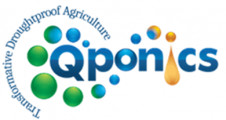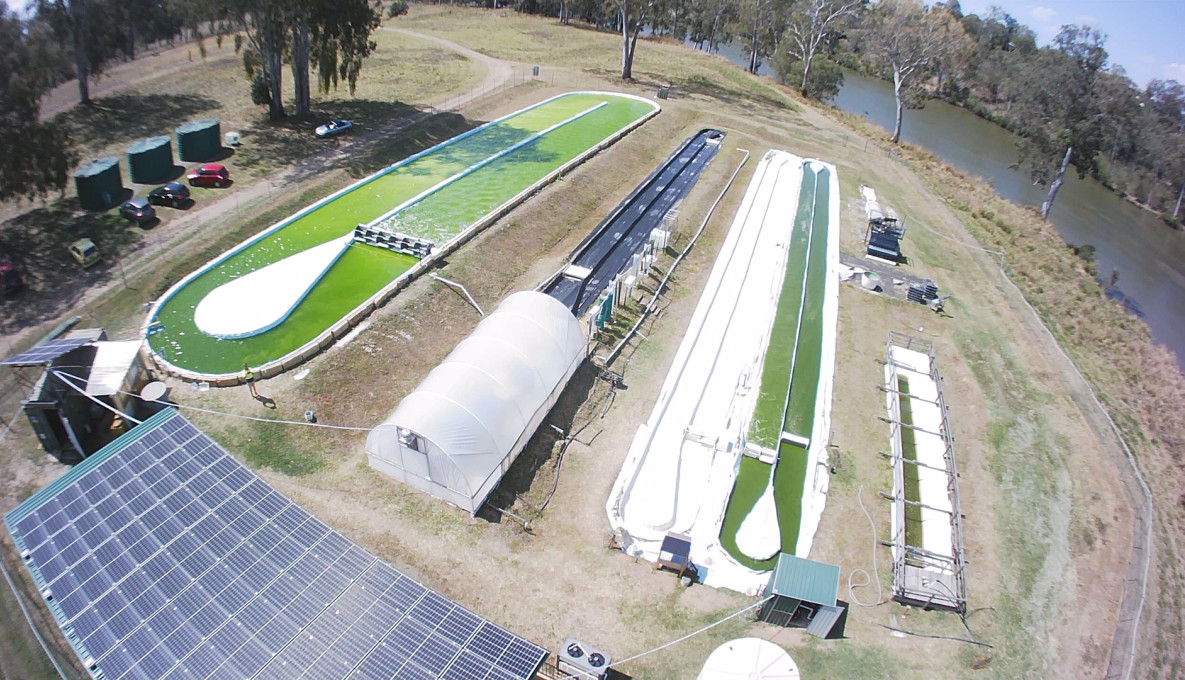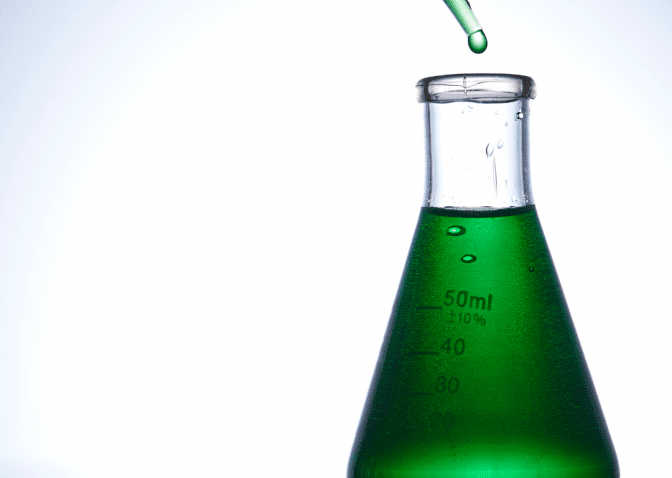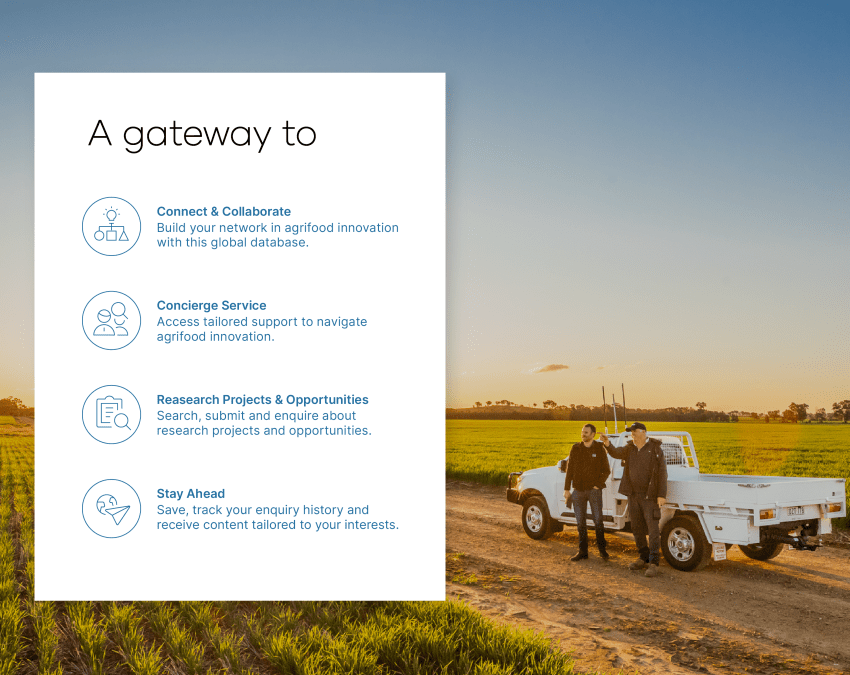
AU$1 million sought for marine microalgae to droughtproof protein supply
Queensland agritech company, Qponics is on a mission to accelerate the transition to drought proof agriculture, by cultivating marine microalgae at scale for the co-production of protein-rich food ingredients and high-value oils. To achieve this, Qponics is seeking impact investors to support the development of a new microalgae production complex in South Ballina, NSW, and scale sustainable oil and protein production in Australia.

CEO and Managing Director of Qponics, Graeme Barnett remembers the ‘Eureka moment’ six years ago when he looked at the productivity data from microalgae grown in an outdoor raceway pond at the University of Queensland’s R&D scale microalgae farm at Pinjarra Hills in Brisbane.
“I thought wow, we’re sitting on something really special here! The productivity from our Nannochloropsis species which is rich in Omega-3 oil was extraordinarily high,” said Graeme.
“That’s because the central area of Australia’s east coast is a ‘Goldilocks’ zone for farming this type of marine microalgae – the temperature and climate is just right, there are pristine tidal rivers with the optimal salinity levels, and there is affordable land available.”
Qponics is now seeking a AU$1 million from impact investors such as, investment funds, family offices and angels, and engagement from global investors with connections in food, beverage, pharmaceutical and nutraceutical companies in the USA, Europe or Asia.^ This investment and expertise will help Qponics begin commercial production of marine bioproducts from microalgae, after successfully developing a production model on its Brisbane pilot farm.
Graeme said marine microalgae offer the most efficient solution to the looming global protein deficit, since the world doesn’t have sufficient land or water to provide enough protein from livestock or crops to feed a projected 9.5 billion people by 2050.
- Interested in Qponics AU$1 million bridging round? Or have connections in food, beverage, pharmaceutical or nutraceutical manufacturing and distribution in Australia, Asia, USA or Europe? Check out the opportunity, here via AgriFutures growAG..
Related organisations

Double the value from Omega-3 oil and byproduct
-crop-672x478.png)
“When we first began researching marine microalgae, we focused on the Omega-3 byproduct which is highly valuable, in the order of $218 per kilogram for the unrefined oil. In the last two or three years we’ve become much more aware of the food value, which is the high protein byproduct that’s left after extracting the oil,” he explained.
“Our process can produce 1 kg of protein on 0.1% of the land area required for beef and 3% of the area required for soybean and chickpea production, and it’s economically sustainable.
“The other great advantage is that marine microalgae requires saline water, not fresh, so it’s a droughtproof form of agriculture. As long as the tidal rivers and oceans don’t dry up, we’ll be in business.”
The Qponics plan is to build a complex of six farms, each over 100 hectares in size, in the region around South Ballina in NSW, and establish a droughtproof marine bioproducts industry in Australia to produce protein as a food ingredient and high value oils for use in the nutraceutical and pharmaceutical industries.
RELATED: Leeuwin Coast’s Akoya – Western Australia’s new frontier for aquaculture
Raceway ponds contribute to circular economy
-crop-672x478.png)
“To be a microalgae farm at scale you have to have $100 million-plus in funding. We’re now in a position to seriously scale up production after developing a commercial model for the cultivation, harvesting and oil extraction of microalgae, so hopefully we will achieve the funding that we need to become a serious player in sustainably produced microalgae,” said Graeme.
“We are yet to purchase land so the recent flooding in the Northern Rivers will reveal which potential sites aren’t at risk. The water we’ll access from a tidal river, will be constantly re-used and there will be no waste products that need to be disposed of. Qponics has applied circular economy principles as a key component of its business model, defined as moving away from the world's current, and enormously wasteful economic model where resources are extracted, turned into products, used, and discarded; and moving toward the 5 R’s of a circular economy: Rethink, Refuse, Reduce, Reuse, Recycle.”
RELATED: The Australian prawn farm raising the bar for sustainable aquaculture
The microalgae are cultivated in 30 centimetres deep, circular ‘raceway’ ponds that contain a paddlewheel to keep the microalgae circulating around the pond and from the top to the bottom layers. As the pond reaches maximum density, the water becomes dense and brightly coloured green, and a percentage of the algae-laden pond water is harvested every three days.
Graeme said after oil is extracted, independent analysis has found approximately 65-72% protein in batches of the Nannochloropsis by-product. Tan in colour, it would be used as a food ingredient.
Australia’s advantage is its climate. Most significant microalgae farms are in the Northern Hemisphere and use photobioreactor technology to cultivate algae, often in a glasshouse or warehouse with artificial lighting and protection over winter.
“The breakthrough will be in building an Australian farm at very large scale, so that in 10 years’ time we may have hundreds of hectares under cultivation,” he said.
Partnership to boost new industries through Marine Bioproducts CRC
Qponics $1 million bridging round will also support its partnership with the Marine Bioproduct Cooperative Research Centre (MB-CRC), by providing access to critical scientific expertise for Qponics R&D projects, and helping to boost new and emerging Australian marine bioproducts industries.
The MB-CRC was launched with $59 million in Federal Government funding to assist new and emerging Australian marine bioproducts industries. There are 45 companies involved, including other algae companies, equipment providers and food companies.

And 11 research partners including, the University of Queensland, Flinders University in Adelaide, CSIRO and others with large collections of microalgae and macroalgae together with advanced expertise all aspects of algae science including the extraction and refining of oils.
Graeme cited the example of the product Chlorella, extracted from a single-celled green algae and marketed as a dried product or ingredient in cooking, as indicative of the potential for microalgae to provide nutrition. Chlorella is native to Taiwan and Japan and naturally rich in proteins, vitamins, minerals, and dietary fibre.
“Independent tests have shown Qponic’s oil is rich in EPA-Omega 3, containing the highest known unrefined concentration of it, and it also has palmitoleic Omega-7 fatty acid, which is rare in nature,” he explained.
“Food manufacturers are increasingly looking to include Omega-3s in their food but it is expensive for them to buy. The nutraceutical and pharmaceutical industries buy most of their omega-3 oil sourced from fish, krill and other marine animals to sell in liquid form or in capsules, and they are on the lookout for sustainable alternatives such as algae oil.”
RELATED: Main Sequence Ventures ‘Feed 10b people’ challenge seeks innovators
Customers ready and waiting for commercial production of microalgae
Qponics has already been approached by companies in a range of different food sectors wanting sources of alternative protein for beverages and developing foods such as plant-based meats. Graeme also noted that Qponics has been liaising with a large global impact fund, which they anticipate will provide unprecedented levels of funding in the future.
“The native unrefined oil is dark green and quite liquid in warmer climates. By the time we’re in commercial production and through our work with the Marine Bioproducts CRC, we would anticipate that the oil will be refined into separate components,” said Graeme.
“The key point is that we can produce large amounts of protein as a food ingredient and produce it profitably due to the high value oil product, which is vitally important for sustainability. The demand is there from large Australian and multinational food companies.”
Interested in Qponics AU$1m investment opportunity? Or have connections in food, beverage, pharmaceutical or nutraceutical manufacturing and distribution fields in Australia, Asia, USA or Europe? Check out the opportunity, here via AgriFutures growAG..
^This investment opportunity is only for professional and sophisticated investors as defined in the Corporations Act 2001 (Cth). The content of this opportunity is intended for use by persons having professional experience in matters relating to investments and must not be acted or relied upon by any other person including, without limitation, retail clients.
-crop-850x675.png)
Looking for engagement?
Showcase your commercialisation opportunity today.
Talk to our team to discuss how growAG. can connect your innovation to industry.
Have questions? Find answers to our most frequently asked questions on research projects, commercial opportunities, organisations and more.
